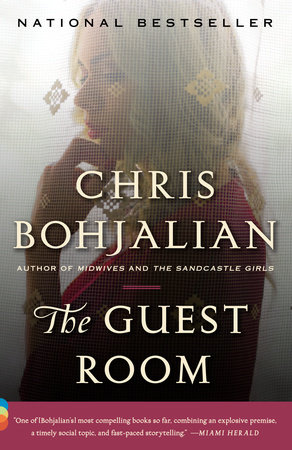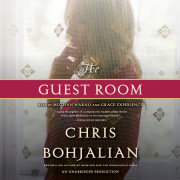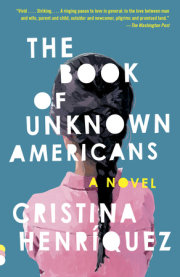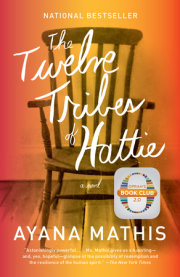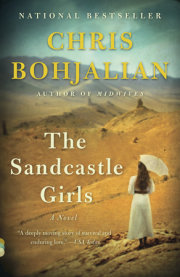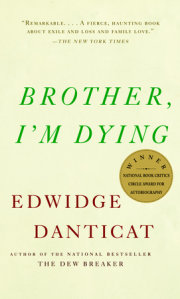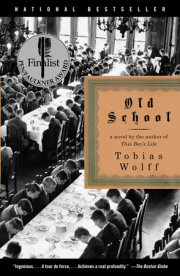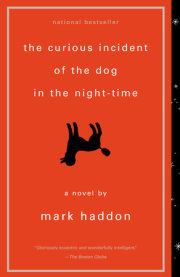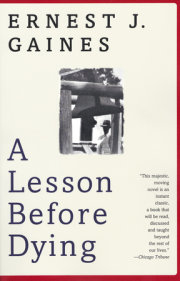Chapter One
Richard Chapman presumed there would be a stripper at his brother Philip’s bachelor party. Perhaps if he had actually thought about it, he might even have expected two. Sure, in sitcoms the stripper always arrived alone, but he knew that in real life strippers often came in pairs. How else could there be a little pretend (or not pretend) girl-on-girl action on the living room carpet? Besides, he worked in mergers and acquisitions, he understood the exigencies of commerce as well as anyone: two strippers meant you could have two gentlemen squirming at once. You could have two girls hovering just above two sets of thighs--or if the girls saw the right combination of neediness and dollar signs in the men’s eyes, not hovering but in fact descending upon each of the men’s laps. Richard wasn’t especially wild about the idea of an exotic dancer in his family’s living room: there was a place for everything in his mind, even the acrobatically tensed sinews of a stripper. But that place wasn’t his home. He didn’t want to be a prig, however; he didn’t want to be the guy who put a damper on his younger brother’s bachelor party. And so he told himself the entertainment would be some girl from Sarah Lawrence or Fordham or NYU with a silly, mellifluous made‑up name making a little money for tuition. He didn’t completely believe this, but in some backward universe sort of way, he felt a little less reprehensible--a little less soiled--if he was getting turned on by a twenty-one-year-old sociology major with a flat stomach and a Brazilian who understood intellectually the cultural politics of stripping and viewed herself as a feminist capitalist.
Richard’s wife, of course, was not present that evening. Kristin had made sure that she and her daughter were at her mother’s apartment in Manhattan. The three of them, three generations of females, one with white hair and one with wheaten and one--the youngest--with hair that was blond and silken and fell to her shoulders, ate dinner at an Italian restaurant the granddaughter liked. It was near Carnegie Hall and had great plaster sculptures of body parts on the walls. Noses. Breasts. An eye. The three of them had theater tickets for a Broadway matinee the following afternoon, Saturday. They weren’t planning to return home until Sunday.
There were supposed to be no videos of the bachelor party. One of the women’s Russian bodyguards told the men to keep their phones in their pants. He said if he saw a phone, he’d break it. He said he’d break the fingers that had been touching the phone, too. (He was smiling when he spoke, but no one doubted his earnestness.)
So there were mostly just stories of what seems to have occurred. How it went from stripping to fucking. How it all went wrong. There is only what the gentlemen, including Richard Chapman, told the police. The talent’s versions? The talent was gone. And those bodyguards? They were dead.
The house, a regal Tudor in what was inadvertently a development of regal Tudors, sat on three-quarters of an acre partway up a wooded hill just off of Pondfield Road. The driveway was steep. One morning Richard had started his pewter gray Audi to drive to the train station for his morning commute to the investment bank in lower Manhattan, but realized he had forgotten his iPad. So he climbed from the car--failing first to reset the parking brake--and then watched, at once horrified and enrapt, as the vehicle rolled backward down the incline, first in slow motion but then with the gathering steam of an avalanche as it rumbles its way down a mountain, rolling into the thin road that led to Pondfield, crossing that main Bronxville thoroughfare, and then slamming into a small copse of maples largely denuded of leaves because it was the last week in October. Miraculously, as if the near accident had been elaborately staged by a film crew, the Audi passed cleanly between a garbage truck plodding up Pondfield Road and a Subaru station wagon with one of the schoolteachers who worked with Kristin racing down it. No one was hurt. The car incurred nearly eight thousand dollars in damage, but this was an Audi: it was far from totaled. Arguably, Richard’s ego was in worse shape--but, like the Audi, eminently repairable.
The house was almost equidistant from the Bronxville train station, where Richard would catch the train, and Siwanoy Country Club, where he would occasionally play golf on the weekends. His favorite room in the house was a mahogany-paneled library, where he had replaced one wall of built‑in bookshelves with a home theater, and where all alone he would watch his beloved New York Giants or he and Kristin would watch whatever sitcoms he had Tivo‑ed that week or some combination of mother and father and daughter would watch as a family whatever movie nine-year-old Melissa had selected. Sometimes those movie nights were a testimony to how quickly and how easily the ear cells were mashed into ineffectual chum by loud noise: Melissa only needed the volume set at five or six; her parents, veterans of Nirvana concerts in their teens and then Pearl Jam and Alice in Chains concerts in their twenties, needed it set at jet engine. Sometimes it seemed to Richard that Disney only made movies where everyone whispered.
This room also held Richard’s and Kristin’s vinyl--and the couple had long rows of albums they had alphabetized like librarians--and the stereo that they both cared for like an antique car.
But Richard also loved the bedroom that he and Kristin shared, especially the bed, which was the perfect height to make love to his wife standing up--that is, he would be standing up, she would be lying on the mattress, her ankles gripped like dumbbells in his hands. He took pride in his daughter’s bedroom and the wallpaper--a jungle of lions and tigers (no bears)--that he had meticulously hung himself, as well as the crisp white armoire and dresser where his fourth grader kept an ever-burgeoning wardrobe. These days, as Melissa had grown more fashion conscious, the room always looked a little ransacked: her sweaters and skirts and tights overflowed from the drawers of the dresser and the doors of the armoire. They cascaded onto the floor like the soap bubbles that once flooded the kitchen from the dishwasher the time that Richard had put dishwashing liquid instead of dishwasher gel into the machine.
But the girl’s bedroom was no longer awash in Barbies and Barbie doll furniture. And Barbie doll outfits. And the Barbie doll shoes, which Richard had observed should be listed with the TSA as weapons a passenger could not bring aboard a plane in a carry‑on. He had stepped on them one time too many in the dark in his bare feet, his sole seemingly impaled by one of the diminutive plastic stilettos, when he was checking the girl’s room before he went to bed: making sure that the heat was just right or the window was open (or closed) or she was properly tucked in beneath the covers. But by nine she had long outgrown the dolls. The anorexic amazons had been replaced by plump American Girl dolls with names like Molly (not Miley) and Felicity and Samantha, and even those dolls sat most of the time in a corner of the bedroom, a film of dust atop their demure bonnets and caps. The Barbie collection, a massive assortment of lifeguards, physicians, and pet groomers, had been boxed away in a snap-tight, plastic Tucker Tote the size of a small summer camp trunk and sat now in a corner of her bedroom. The Tucker Tote was clear, except for the lid, which was blue. One of these days, Richard planned to cart the dolls up the stairs that fell from the second-floor hallway ceiling into the attic.
As for the rest of the house, Richard was largely oblivious. He spent too little time in the kitchen to have formed any serious opinions, and he assumed all appliances were more or less equal. Like a sleepwalker he would pour himself coffee there in the morning, and he would bring the dishes there from the dining room after dinner--occasionally, but only rarely, breaking a plate or allowing a knife to slide off the china and deposit mustard sauce on the hardwood dining room floor. But the kitchen was not the nerve center of the house the way it was in so many suburban homes. Kristin never graded papers at the kitchen table there. Richard never examined company profiles or crunched numbers there.
The same was true of his feelings toward the mudroom and the powder room and the pantry, with its glass cabinet doors dating back to the 1930s.
And so while he knew that the men at the bachelor party would be wandering throughout the kitchen and the dining room and the pantry, he really didn’t care. They would be nowhere near the sanctum sanctorum of bedrooms upstairs. Mostly, he guessed, they would be reveling amid the bricks and mortar and magnificent exposed wooden beams in the family’s living room or the smaller den beside it. In those rooms, the paint was the colors of hyacinth and squash and brass and antiquarian brown, and the wallpaper was a series of meticulous renderings of garden flowers. (He had hung that, too. He was, he knew, clumsy; but he was also strangely gifted when it came to select home improvements. He was a virtuoso paperhanger, and it gave him ineffable pleasure to paper those rooms that mattered to his wife and his daughter. Only the front hallway had the home’s original wallpaper.) The house was a mannered world of very conventional domesticity. And if there was a stripper there? If Philip’s friend at the hotel did indeed dial one up? Not a big deal. When she left, when the furniture was moved back into place and the dishwasher had been filled with the men’s glasses, the house once more would be a domiciliary keep for his wife and his daughter and himself.
The autumn rain drummed against the slate roof, but the men were oblivious, the lower clouds soup and the higher ones columns of unseasonal, crepitating thunderheads. A few of the men, including Richard, were vaguely aware that somewhere in the room an ancient Madonna song was on the Bose speaker dock, but most had stopped listening to the strippers’ playlist back on Nelly, because that was when the two girls had started grinding against each other.
Brandon Fisher was sitting beside Richard on the living room couch and leaned forward, murmuring, “Where do you think these girls are from? They’re not American.” A few minutes ago, Brandon had had one of the girls straddling his lap, her breasts pressed hard against his face; she hadn’t seemed to mind when he slipped his fingers underneath the front of her thong. She had even pretended she liked it. And, much to Richard’s surprise, their bodyguards didn’t seem to care: when he’d seen what Brandon was doing, he’d expected their muscle--two large, terrifying Russian dudes, both with shaved heads--to swoop in and break the guy’s hand. But they hadn’t. Brandon had simply given the girl a fifty, which she, in turn, had discreetly slipped into the jacket pocket of one of her handlers. He’d licked his fingers and wolfishly raised his eyebrows. Some of the men had howled.
As soon as the girls had arrived, Richard had moved the coffee table into the kitchen. He had moved the coffee table and the wine rack and a side table with a luminescent glass bowl hand-blown by a Vermont artisan into the kitchen. He wanted to be sure that the girls had room to strip and do whatever else his brother’s best friends were paying them to do in his living room--because, it was clear to him now, these were not mere strippers. They were something more. Way more. He glanced once again at Brandon’s hand. This was not at all what he had expected and he felt a little . . . unclean. But he also couldn’t imagine being anyplace else right now and not getting to see this--though he was still unsure precisely what this was and where it was all going to end. He reminded himself that he was drunk and told himself he should be grateful to get to see a live sex show in his living room. But then he had a pang of concern for the Oriental carpet. Did he really want the sex stains of strange women and his brother’s friends forever marking the antique rug?
“Russia? The Ukraine? I don’t know,” he answered Brandon finally. “I mean, the guys who brought them here have Russian accents.”
One of the girls was blond, her hair cut into a bob. The other’s hair was creosote black and cascaded in waterfalls down her neck and onto her shoulders. She was still in her thong, but the blonde--whose hands were cupping the other girl’s ass, her fingers splayed, with such apparent force that the breath had caught in his throat--was absolutely naked but for the glitter that sparkled in the light from the wrought-iron floor lamp.
“Maybe the Middle East,” Brandon suggested.
“Not the blonde.”
“Hair’s dyed,” he said.
“I’m thinking Eastern Europe. Maybe Germany? Or, I don’t know, Estonia.”
Abruptly his younger brother, Philip, cuffed him good-naturedly on the shoulder, causing him to spill some of his beer on his lap. “Dude!” Philip told him, his voice happily, boyishly, boisterously hammered. “Seriously? You have two chicks about to go down on each other six feet away from you, and you’re trying to figure out where the fuck they’re from?” He laughed, tousled Richard’s hair, and then added, “You have been married way too fucking long, my older brother! Way too fucking long!”
Philip was thirty-five and a month that autumn night, and he was going to marry a woman five years younger than he was, which meant that she was a full decade younger than Richard and Kristin. A decade is a long time. Think history. It’s the difference between--for example--1953 and 1963. Or 1992 and 2002. Philip’s fiancee, a lovely young woman named Nicole, was a graphic artist who owned a studio with a skylight in Fort Greene, though she spent most nights at Philip’s larger apartment near the promenade in Brooklyn Heights. Philip had a Master of Management in Hospitality from Cornell and ran the reception desk at a trendy boutique hotel in Chelsea. You had to look like a runway model from Prague--tall and blond, with cheekbones only a god could sculpt--to stand behind the black marble podiums and check someone in. He said he was an (and he always said the word with an irony that actually bespoke considerable pride) hotelier.
Copyright © 2016 by Chris Bohjalian. All rights reserved. No part of this excerpt may be reproduced or reprinted without permission in writing from the publisher.

